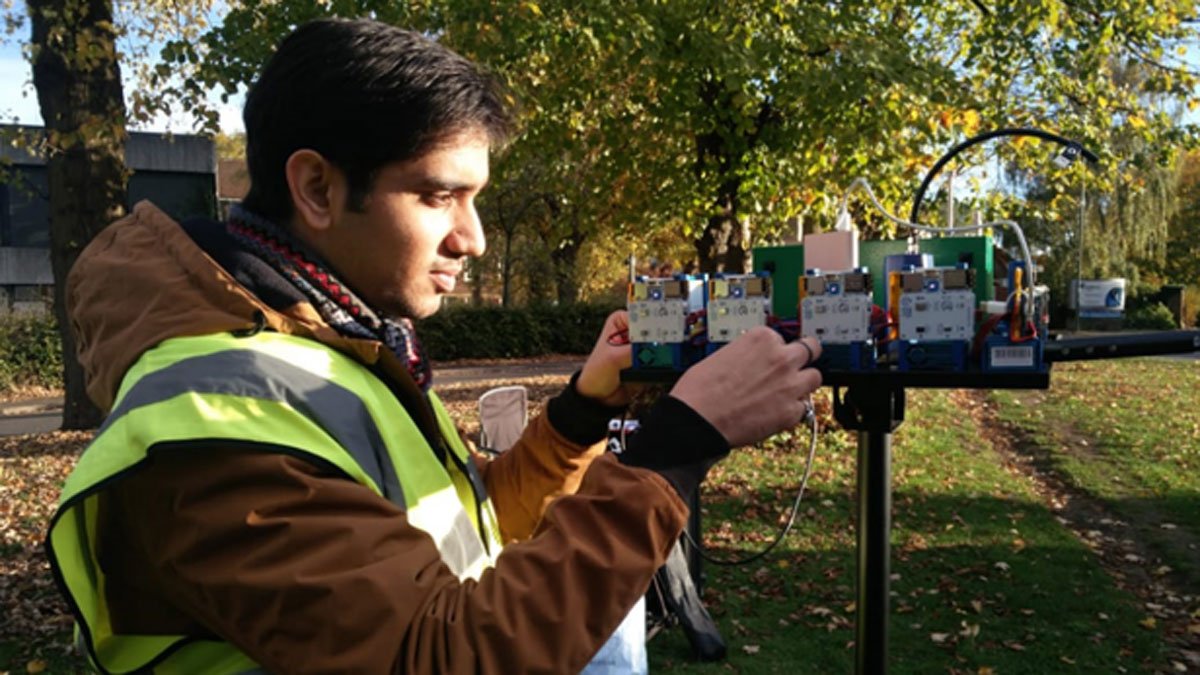Testing of low-cost air pollution sensors
The emergence of low-cost sensors has rapidly changed the landscape for air pollution monitoring. However, currently no accreditation or regulatory standards exist for low-cost sensors, which means that calibration and performance assessment of the sensors is carried out using reference instruments, under limited ranges of environmental conditions and pollutant concentrations.

The EPSRC funded project SENSORS on ‘Metrology to exploit low-cost sensor networks for applications in air quality and energy management’ aims to effectively calibrate low-cost sensors for measuring a range of pollutants including, nitrous oxides, ozone, carbon monoxide and particles, and will account for various environmental conditions. Techniques are also being developed to maintain the calibration for as long as possible by detecting and quantifying any drift that might occur.
Low-cost sensor systems are advantageous, as their low price allows a number of them to be deployed over a short area, giving very dense air pollution data without requiring both the monetary and labour investment that reference equipment requires.
This project is being undertaken in collaboration with the National Physical Laboratory (NPL) in Teddington, which both gives access to NPL’s state-of-the-art facilities, and also allows for collaborative work with teams that are already working in the field of low-cost sensors. This includes those working on the Breathe London project, which is currently deploying over 100 low-cost sensors around Greater London.
With funding from Innovate UK, the Global Centre for Clean Air Research (GCARE) designed and built the Envilution® chamber, an affordable, compact and lightweight unit which is being used to evaluate the performance of the different low-cost sensors. Easy to operate and maintain, the 125l Envilution® chamber provides a controlled environment for a wide range of test conditions in terms of temperature (5 to 40°C), relative humidity (10 to 90%), and concentrations of fine particulate matter and gases.
GCARE conducted a performance evaluation of low-cost sensors inside the Envilution® chamber. This work found that generating and maintaining different environmental conditions and pollution concentrations using the chamber is a highly useful method of evaluating the performance of low‑cost sensors.